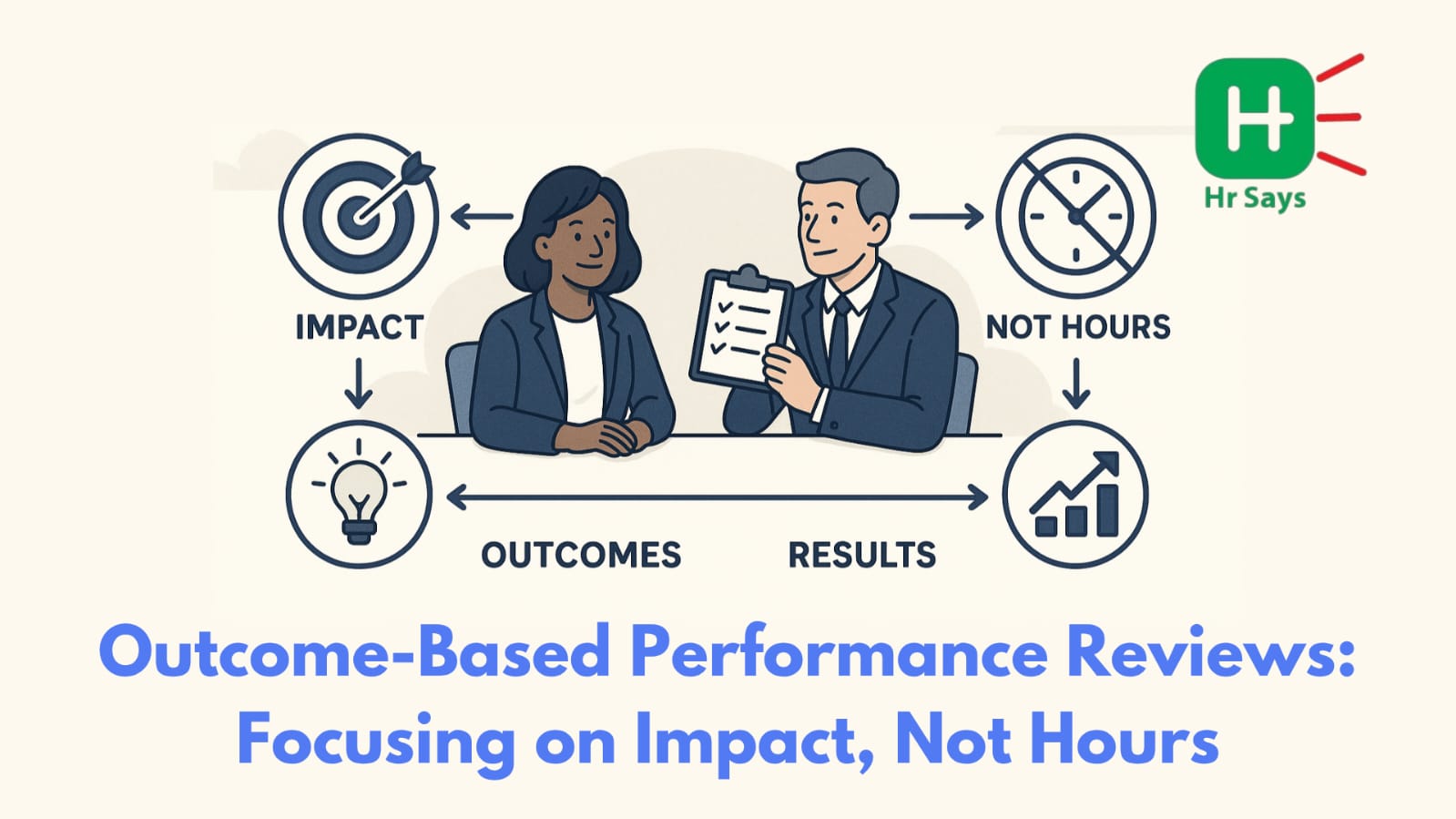What makes someone a top performer? Is it time spent at a desk? Or what gets done? More companies are asking this. And slowly, outcome-based performance reviews are replacing traditional evaluations. Impact is in. Hours are out.
Why the Clock Is Losing Power
Clocking in used to mean commitment. Now, it often means nothing.
The rise of remote work has blurred the lines. People work late. Or early. From airports or couches. Yet output hasn’t dropped. In some cases, it’s improved.
So, a question had to be asked— What exactly are we measuring?
Traditional reviews focused on:
● Punctuality
● Attendance
● Task completion
● Manager observations
But these don’t show the real value someone brings. Busy doesn’t mean productive. Present doesn’t mean impactful.
Outcome-Based Reviews: What They Measure Instead
Here, effort is noticed—but results speak louder. Impact is traced, not time.
What’s usually assessed:
● Results delivered (Were goals met?)
● Quality of work (Not just quantity)
● Problem-solving (Were challenges handled smartly?)
● Team contribution (Did collaboration happen?)
● Growth mindset (Did the person improve?)
The method demands clarity from the start. Employees must know what’s expected. Managers must define outcomes—not just assign tasks.
The Catch? It’s Not All Smooth.
The shift sounds modern. But it comes with friction.
Some challenges include:
● Vague goals leading to confusion
● Overemphasis on results, ignoring effort
● Hard-to-measure roles (e.g., admin support)
● Biases still leaking into reviews
And yes—some people game the system. They chase results, skip the process. Or take credit for team efforts.
Not all work is linear. Not all impact is visible. That’s where this model sometimes struggles.
Why It Still Matters
Despite its flaws, outcome-based reviews push companies forward.
They:
● Encourage autonomy
● Support remote and hybrid models
● Reward quality, not time-wasting
● Focus on value creation
In the long run, they build a culture of accountability. No one hides behind presence. Everyone knows what matters.
Conclusion
Shifting to outcome-based performance reviews is like changing lenses. It brings certain things into sharp focus—while blurring others.
The method isn’t perfect. But it reflects a deeper truth: Work is changing. So should the way it’s judged.
Impact matters. Hours pass. Only one tells the real story.

 The 9-to-5 mindset is fading. In its place, a quieter shift is happening—toward evaluating work based on output, not attendance. Is this better? Maybe. But it’s not without discomfort and change.
The 9-to-5 mindset is fading. In its place, a quieter shift is happening—toward evaluating work based on output, not attendance. Is this better? Maybe. But it’s not without discomfort and change.








.jpeg)
.jpeg)

.jpeg)





.jpeg)



.jpeg)

.jpeg)



